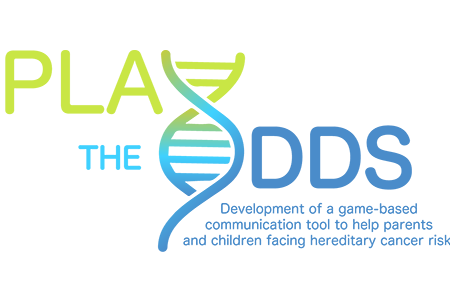In the week that marks the Rare Disease Day, which since its creation in 2008 is celebrated on the last day of February, the 28th, or 29th, the rarest day of the year, we learn about PLAY-THE-ODDS, a project led by the University of Porto that encourages families to talk about the risk of hereditary cancer and rare diseases.
This project, which included in the research team António Coelho (DEI), Hernâni Oliveira (alumni PDMD) and Juliana Monteiro (PDMD), is part of a research line of the Psychology Center of the University of Porto, dedicated to the well-being of families with hereditary cancer risk. This line of research began in 2018 with a joint project with IPO Porto, the TOGETHER project, funded by the Foundation for Science and Technology (POCI-01-0145-FEDER-030980). TOGETHER studied the processes of psychological adaptation to the performance of genetic susceptibility tests to cancer. All the scientific output can be found here and has been compiled in this White Paper. We find in this documentation very useful content about genetic syndromes of risk for cancer and prevention of hereditary cancer, family adaptation to genetic cancer risk, and some of the main genetic syndromes of risk for cancer and their characteristics and the importance of health services.
In the course of TOGETHER, both families and health professionals indicated the need for specific preparation to disclose to their children the presence of a syndrome in the family, as well as to deal with the challenges of this condition over time.
PLAY-THE-ODDS is an 18-month exploratory project, funded by FCT (EXPL/PSI-GER/1270/2021), which responds to this need. Based on scientific research, and using participatory methodologies, PLAY-THE-ODDS brings together people with hereditary cancer syndromes and their families, genetic counseling specialists, psychologists, communication designers, and gamification experts to co-create solutions. Specific preparation to disclose to children the presence of a hereditary cancer syndrome in the family, as well as to deal with the challenges of this condition over time, is a need that families have come to feel.
According to Célia Sales, the principal investigator, “this reality can be very distressing. The person with the syndrome is dealing with his or her own diagnosis and, at the same time, with the fear that he or she may have passed this condition on to their children. They don´t know if they should tell their children, or how, or when the time is right. Our goal is to create a prototype of an interactive communication tool to help parents and children communicate about hereditary cancer risk, which can be integrated in routine genetic counseling and psycho-oncology settings as a support resource for families.”
One of the novelties brought by this project is its co-creation approach: the project brings together people with hereditary cancer syndromes and their families, health professionals (Genetic Counseling and Psychology) and technology professionals (Communication Design and Human-Centered Design) in the active search for solutions to the real needs of their daily lives. For Hernâni Oliveira, co-principal investigator, “this project is innovative because it is the family itself and the health professionals who, together with specialists in technology, define the solution that helps them the most, a real solution defined by those who live this reality”.
Communicating health-related problems and the possibility of hereditary cancer is not an easy task, especially in a family context, where the generational difference can be an added difficulty. Serious games can help bridge these differences and serve as facilitators to help both in communicating the implications of the disease for all family members, and in helping the patient better internalize and understand the situation they are in.
With this in mind João Monteiro Leite, recent M.EIC graduate, collaborated in the project through the dissertation “Collaborative platform for soundwalks to improve health literacy and communication”, where he developed a framework for a platform that will host several solutions aiming to help patients better understand their condition and the associated genetic risks, as well as facilitate the communication of this syndrome to other relatives. These solutions should also assist users in understanding the risks they face, as well as the measures that exist to deal with these. One such solution, the main focus of this thesis, is the development of a soundwalk, which presents a narrative story with some challenges designed to help facilitate communication between the parental dyad.
+ information about PLAY-THE-ODDS, can be obtained from the researcher Juliana Monteiro through the email jmonteiro.playtheodds@gmail.com.
